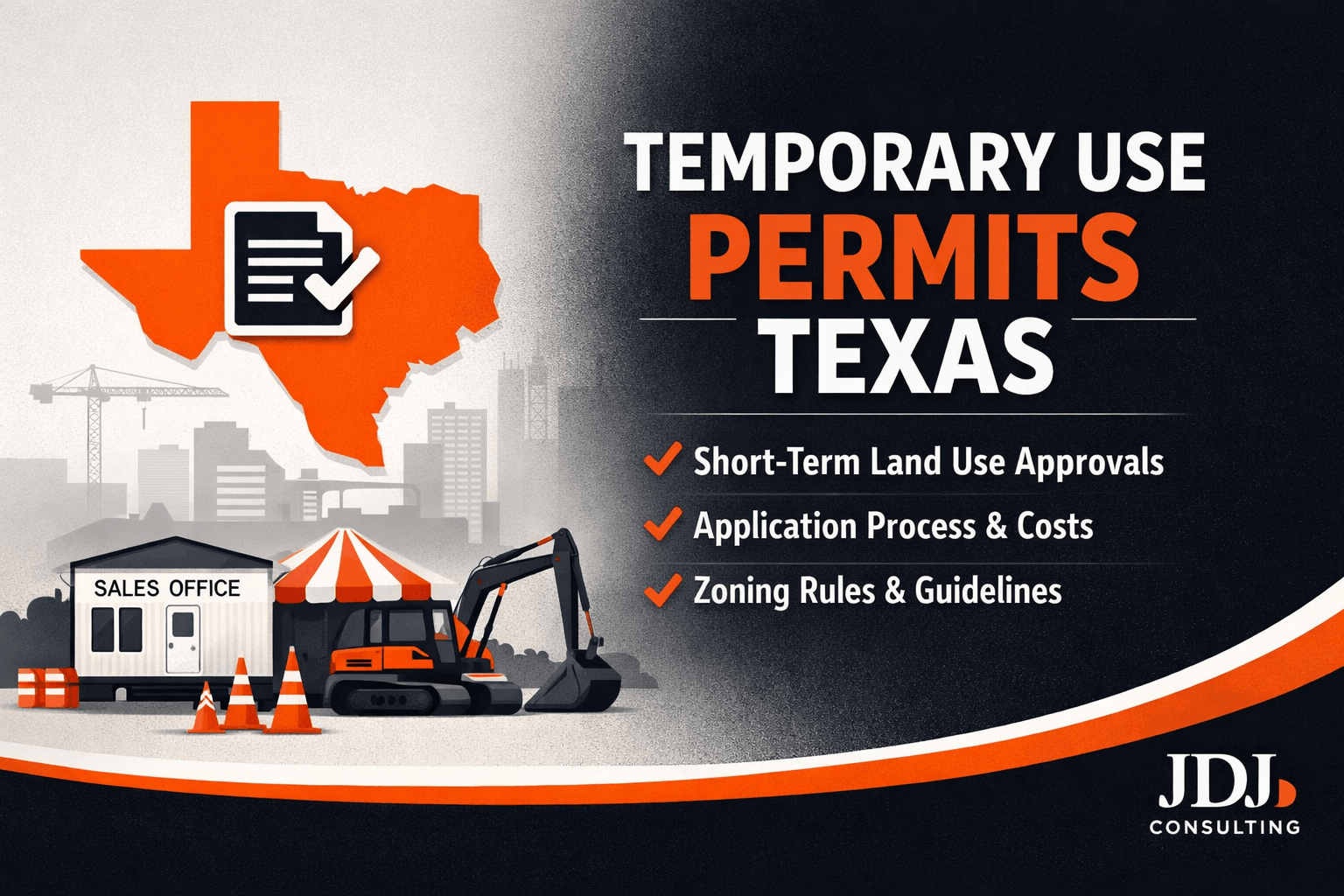LA City Council Voted for Housing Development While Leaving Out Single-Family Zones
Los Angeles has a housing problem. Prices keep rising, and many residents cannot find affordable homes. The city needs to build thousands of new units each year but falls short.
Table of Contents
ToggleRecently, the L.A. City Council voted on new zoning reforms. These changes aim to increase housing in some parts of the city. But they left single-family-home neighborhoods untouched.
This decision matters for developers, investors, and property owners. It creates new chances in some areas, while keeping other areas off-limits. At JDJ Consulting Group, we help clients understand these shifts and plan their projects.
What the City Council Decided
The vote approved rules that allow more housing in commercial zones. Developers can now add residential units above retail spaces. Density is also allowed along certain major boulevards.
But the council did not touch R1 zones, where only one home is allowed per lot. That means large parts of Los Angeles stay locked as single-family neighborhoods.
For property owners, this is a mixed result. Some corridors are open for new projects, but many desirable neighborhoods remain off-limits.
Why Zoning Matters in Housing
Zoning rules control land use in Los Angeles. They decide what can be built, how tall it can be, and where.
For years, zoning has been both a barrier and a chance for developers. Rules can make projects costly or slow, but changes in zoning can unlock new value.
The new vote is a good example. It allows more mixed-use housing, but not in every area. Developers must study maps carefully to see what is now possible.
Challenges for Developers and Investors
Financing Concerns
Building housing in Los Angeles is expensive. Land costs are high, and construction prices keep climbing. Even with more density allowed, many projects may not attract financing.
Studies from UCLA and AECOM show that only high-value markets make sense under current rules. That means new units may mostly be luxury or market-rate. Affordable housing remains harder to produce.
Long ROI Timelines
Developers also worry about return on investment. Projects can take years to approve and complete. With rules shifting often, investors fear sinking money into plans that may not work out.
Some developers now look to other states like Texas or Arizona, where rules are simpler and timelines shorter.
Uneven Market Impact
The reforms will not affect all neighborhoods the same way. Areas like Koreatown or Downtown may see new projects rise. Single-family zones will remain unchanged, keeping prices high and supply tight.
For investors, Los Angeles now has a two-speed market. Some areas allow growth but carry risk. Others stay stable but have little development potential.
Entitlements and Permits
Even when zoning allows a project, permits can take years. Developers must still go through long reviews and approvals. This adds to costs and delays.

The council’s decision does create some new openings:
Housing above retail – For the first time in decades, property owners can build residential units above shops without special approval.
Boulevard density – More housing is now possible along busy corridors, especially near transit.
These are positive changes, but they do not remove all barriers. Permitting remains slow, and entitlement work is still complex.
At JDJ Consulting Group, we guide clients through this maze. We prepare zoning reports, plan entitlement paths, and expedite permits to reduce delays.
Housing Goals and State Law
Los Angeles has state housing targets called RHNA. The city must add thousands of homes to meet these goals. But experts say it cannot succeed without opening single-family neighborhoods to more units.
UCLA and AECOM both found that excluding R1 zones makes it impossible to reach the targets. The city is also at risk under fair housing laws. These laws require cities to spread housing across all neighborhoods, not just commercial areas.
By keeping single-family zones off-limits, Los Angeles risks conflict with state housing agencies. That could mean lawsuits, lost funding, or state intervention.
For developers, this creates uncertainty. But it may also bring opportunity. If the state forces more reform later, investors who move early may benefit most.
Community Pushback and Political Divides
Not everyone supported the council’s vote. Out of 15 members, two voted against the plan. Their concern was that the reforms do not go far enough.
Housing advocates argue that keeping single-family zones untouched is unfair. These zones take up most of the city’s land but remain protected. Advocates say this protects wealthier areas while forcing density into already crowded neighborhoods.
On the other side, many homeowners fought to keep single-family rules. They fear apartments or mixed-use buildings will change the look of their neighborhoods. They also worry about traffic, parking, and strain on schools.
This debate reflects the larger divide in Los Angeles. Some want to preserve low-density communities. Others want broad reform to fight high housing costs.
Legal Risks and NIMBY vs. YIMBY Battles
The divide between NIMBYs (“Not In My Backyard”) and YIMBYs (“Yes In My Backyard”) has grown stronger.
NIMBY groups often use lawsuits to slow projects. They argue over traffic, noise, or environmental impact. These lawsuits can delay housing for years.
YIMBY advocates push for more housing everywhere. They argue that limiting development raises costs for everyone. They point to the state’s housing shortage as proof that more units are needed.
Los Angeles must balance these forces. If it fails, the state could step in with stronger mandates.
What This Means for Property Owners
For property owners, the new rules create both risk and opportunity.
Small Developers: Owners of retail properties now have new options. They can add residential units above shops or offices. This could increase property value and create rental income.
Mixed-Use Projects: Developers with land along major boulevards can now plan larger buildings. This may draw more interest from investors and lenders.
Single-Family Owners: Those in R1 zones see little change. Their neighborhoods remain protected, but home prices may keep climbing.
The biggest winners may be property owners in commercial corridors. They can now explore housing projects without rezoning fights.
Redevelopment and Adaptive Reuse
Another trend to watch is adaptive reuse. Many old office and retail spaces sit empty after the pandemic. With new rules, these properties can be converted into housing.
This approach may be cheaper than new construction. It also fits city goals for sustainability and urban renewal.
Property owners should review their assets. An underperforming commercial site may now become a prime housing opportunity.
🏙️ L.A. City Council Voted for Housing Development
The City Council approved new measures to boost housing growth—but excluded single-family zones. This decision impacts zoning, development feasibility, and investment strategies across Los Angeles.
📊 Impact
Multi-family zones may see growth, but SFH neighborhoods remain protected.
💡 Challenge
Developers face limits in meeting L.A.’s state housing obligations.
✅ Opportunity
Strategic zoning consulting helps maximize value in approved zones.
How JDJ Consulting Group Helps
Zoning changes are complex. Many property owners do not have time to study every detail. That is where JDJ Consulting Group comes in.
We provide:
Zoning Reports – Clear analysis of what you can build under new rules.
Permit Expediting – Faster movement through city approvals.
Development Strategy – Guidance on whether a project is feasible and how to finance it.
State Compliance Advice – Insight into how state mandates affect your property.
Our team has deep experience working with city staff. We understand how to reduce delays and unlock opportunities.
For property owners and investors, this support can save both time and money.
Looking Ahead: The Future of Housing in Los Angeles
The council’s vote is just one step. More reforms are likely in the coming years. State pressure will continue to grow, especially if Los Angeles falls short of housing targets.
Policy Shifts to Expect
Greater Inclusion of R1 Zones – At some point, single-family areas may be forced to allow more housing types.
Stronger State Oversight – California could take away local control if cities fail to comply with housing laws.
Faster Approvals – The state may push for faster permitting to reduce delays.
Investor Outlook
For investors, Los Angeles remains a challenging but high-value market. The key is picking the right location and project type. Areas near transit corridors or commercial hubs may offer the best returns.
Those who wait for full clarity may miss early opportunities. Those who move now must accept more risk but may gain higher rewards.
Turning Limits Into Opportunities
The council’s decision shows the tension in Los Angeles housing. The city wants growth but avoids disrupting single-family neighborhoods. This creates uneven chances across the market.
For developers and investors, the key is flexibility. The rules will continue to shift, and successful players must adapt.
At JDJ Consulting Group, we help clients see beyond today’s limits. With the right strategy, policy barriers can become investment openings.
Conclusion: LA City Council Voted for Housing Development
The L.A. City Council’s vote opens some doors but leaves others shut. Housing above retail and along boulevards is now easier. But single-family zones remain untouched, limiting the city’s ability to meet housing needs.
This creates challenges for affordability, compliance with state law, and community fairness. It also creates new opportunities for developers and property owners who know where to look.
The future of Los Angeles housing will depend on how quickly policies evolve. For now, success means careful planning and smart navigation of the rules.
At JDJ Consulting Group, we guide clients through these changes. We turn complex zoning shifts into clear opportunities. If you own property or plan to invest in Los Angeles, now is the time to act. Call us at (818) 793-5058 to schedule your free strategy call with our consultants.
Error: Contact form not found.






